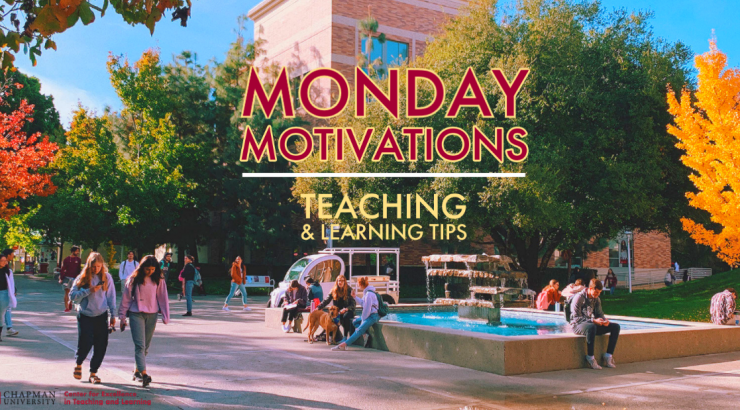
Teaching Tips for the Week of September 11, 2023
September 7, 2023
Strategies for Success: Tips to Share with Students
As the fall term gets underway, now is the time for students to learn about and implement realistic, evidence-based strategies for their academic success. In their article, Optimizing Learning in College: Tips from Cognitive Psychology, the authors provide several high-impact strategies to help students better manage their time, study more effectively, and create a framework for college success (Putnam, Sungkhasettee, & Roediger, 2016).
We know that simply showing up for class, even if they take notes, isn’t enough for students to retain and master course concepts and competencies. With so many internal and external pressures and distractions, students must learn how to focus and make the best use of their time, both in and out of the classroom. It’s important to remember that many students, especially college freshmen, come into our classrooms lacking basic study skills. Equipping them with the information and tools necessary to do well is one thing we can do to support their learning and success.
In their article, written for students, the authors present a list of strategies for starting the semester, preparing for each class, during class, after class, and preparing for tests, along with some additional general tips for overall wellness. These strategies include suggestions such as:
- Organize your time
- Find a quiet place to study
- Answer comprehension questions before reading assigned chapters
- Generate questions about important points
- Attend all your lectures/classes
- Leave your laptop at home
- Write your notes instead of typing them
- Study each subject a little bit each day
- Study by quizzing yourself
We recommend sharing this article and perhaps discussing the tips provided with your students, especially in relation to your course. First-year and first-generation students in particular can benefit from learning about how to be an effective and successful college student. Implementing the strategies and tips presented in this article can help alleviate stress and reduce unnecessary strain on students’ cognitive load so they can focus on what they’re learning.
Interested in exploring any of these ideas further or discussing how you might implement them in your own teaching practices? Is there a tip you’ve tried that you would like to share with colleagues? Contact CETL or schedule a consultation to continue the conversation.


